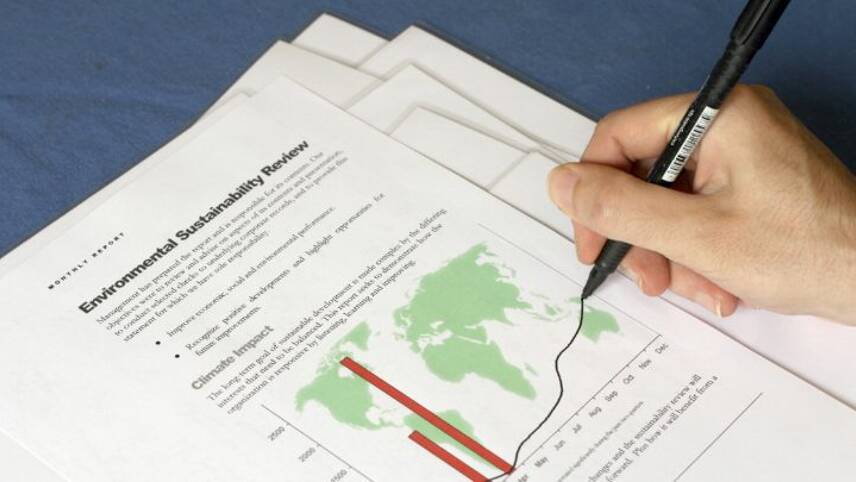Register for free and continue reading
Join our growing army of changemakers and get unlimited access to our premium content

Speakers will be announced over the coming weeks
The initiative, called ‘Carbon Call’ and launched on Thursday (10 February), is aiming to improve emissions data collection, accessibility, reliability and comparability globally – at international, national and business levels.
In launching Carbon Call, the Foundation pointed to a recent analysis from the Washington Post which concluded that current problems with carbon reporting systems are leading to at least 8.5 billion tonnes of CO2e going unreported each year. For context, the US generated some 6.8 billion tonnes of CO2e in 2019.
This under-reporting could undermine the transition to net-zero. According to Net Zero Tracker, nations, states and regions representing more than 90% of GDP have announced net-zero targets to date.
“Today, carbon accounting suffers from data quality issues, measurement and reporting inconsistencies, siloed platforms, and infrastructure challenges,” states a release on the launch of Carbon Call.
“This makes it difficult to compare, combine and share reliable data, particularly for companies.”
ClimateWorks Foundation has said it plans to engage scientists, academics, corporates, intergovernmental organisations and philanthropists in the initiative. To this latter point, it has provided more than $1.3bn in grants to green projects across the world since it launched in 2008, with most funding provided by philanthropists.
To the point on intergovernmental organisations, the UN’s Environment Programme (UNEP) and the UN’s charitable arm, UN Foundation, have signed on as collaborators.
From the private sector, a swathe of businesses has signed on. They will collaborate on the development of universal carbon accounting standards, provide their services to improve the interoperability of digital accounting frameworks and improve their own emissions disclosure. They have committed to reporting emissions from all scopes, including indirect (Scope 3) emissions across the value chain, as well as reporting all offset data. This information will need to be placed in their own corporate reports and on their websites, as well as the dedicated carbon call website.
Business signatories include Microsoft, EY, KPMG, Deloitte, Wipro, LF Energy and Capricorn Investment Group. Also signing up is the Corporate Leaders Group Europe (CLG), based out of the University of Cambridge. CLG members include Coca-Cola Europacific Partners, DSM, EDF, Ball Corporation, Iberdrola, Interface, Ingka, Rockwool, Salesforce, Signify, Sky and Unilever.
“As action on climate change scales up and becomes mainstream, we’re seeing a growing trust gap as new promises are made without the tools and systems to track delivery,” said CLG director Eliot Whittington.
“Carbon Call is a much-needed rallying point for efforts to improve the accountability, transparency and readability of data on carbon emissions across the economy — an indispensable tool in closing that trust gap. Better collaboration for more transparent, more clear and more useful data will help the world keep track of climate pledges and give insights into how to improve and accelerate delivery of the Paris Agreement.”
Also supporting Carbon Call are several research and philanthropic organisations, including the Global Carbon Project, the Global Council for Science and the Environment, the International Science Council, the Skoll Foundation and the Linux Foundation.
The launch of the call comes shortly after a report questioning the reliability of the emissions accounting underpinning corporate net-zero commitments was published, receiving much coverage in the mainstream media. Written by the New Climate Institute and Carbon Market Watch, the report assessed 25 corporates’ net-zero commitments. It found that the companies are collectively planning to reduce emissions by just 23%, from 2019 levels, meaning they are over-relying on offsetting and not delivering a science-based transition.
That’s a WRAP
In related news, WRAP has signed up more than 100 food and drink organisations to co-develop a unified system for measuring Scope 3 emissions across the sector. For many businesses operating in this space, Scope 3 emissions will account for 80-90% of their total footprint.
At an event on Thursday, WRAP confirmed that the reporting protocols will be published later this year, following a pilot that will launch in April. The protocols will be updated on an ongoing basis in line with industry learnings, WRAP confirmed, and they will be consistent with existing frameworks that are not sector-specifcic, including the GHG Protocol.
WRAP’s chief executive Marcus Gover said: “There is currently no consistent way of quantifying supply chain emissions and businesses either have to commission expensive life cycle analysis for each ingredient or use average values from a variety of contrasting public data sets. This is a burden for suppliers and makes it impossible to compare the information provided by different businesses.
“If we are to make reliable progress in tackling climate change then we have to have a common measurement and an agreed set of emission factors that everyone can use.”
Sarah George


Please login or Register to leave a comment.